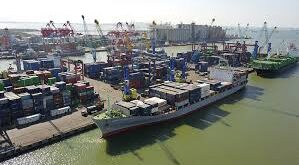In France, the profession of a VTC (Vehicle for Tourism with Chauffeur) driver is strictly regulated, including requirements for specific insurance coverages. This regulatory framework ensures that drivers, passengers, and third parties are protected against accidents, damages, and potential legal disputes. If you’re considering becoming a VTC driver in France, it’s crucial to understand the mandatory insurance requirements to operate legally and safely. This article outlines the primary mandatory insurances and additional recommended policies for VTC drivers in France, along with an overview of the costs involved.
1. Professional Liability Insurance (Responsabilité Civile Professionnelle or RC Pro)
The Professional Liability Insurance (often referred to as RC Pro) is mandatory for all VTC drivers in France. This insurance covers bodily injury, property damage, and financial losses that may occur while providing professional services to clients.
Why is RC Pro Necessary?
- Passenger Protection: RC Pro covers clients in case of any injuries they might sustain while riding in the VTC vehicle.
- Legal Requirement: It’s required by French law for all VTC drivers and is a crucial part of obtaining a VTC driver’s permit.
- Professional Liability: It protects drivers from legal and financial liabilities related to customer claims or potential lawsuits.
RC Pro is one of the most essential coverages in the VTC industry, as it guarantees that passengers are protected throughout the journey, covering incidents within the vehicle and ensuring compliance with French regulations.
2. Civil Liability Automobile Insurance (Responsabilité Civile Automobile)
Civil Liability Automobile insurance, often called RC Auto, is required for all vehicles on French roads, including those used by VTC drivers. This insurance covers damages caused to third parties (including other vehicles, pedestrians, and public infrastructure) in the event of an accident but does not cover the VTC driver’s vehicle or injuries they might sustain.
RC Auto Requirements for VTC Drivers:
- Professional Usage: Standard car insurance won’t cover commercial use, so VTC drivers must have an RC Auto policy specifically adapted to the passenger transport business.
- Third-Party Coverage: This insurance focuses on protecting others from damages caused by the driver, which makes it essential for any VTC activity.
It’s important to verify that this civil liability policy includes specific clauses allowing the transport of paying passengers since standard RC Auto policies do not cover professional transportation services.
3. Comprehensive Insurance (Optional but Highly Recommended)
While comprehensive insurance is not legally required, it is highly recommended for VTC drivers in France. Unlike RC Auto, which only covers third-party damages, comprehensive insurance protects the VTC driver’s vehicle, covering repairs and replacements in case of an accident, vandalism, or natural disasters.
Why Comprehensive Insurance is Beneficial:
- Vehicle Damage: Covers the driver’s vehicle for repairs, even in cases where the driver is at fault.
- Financial Protection: Reduces personal out-of-pocket costs for major repairs, helping drivers maintain business continuity.
- Assistance Options: Many comprehensive policies offer roadside assistance for breakdowns or other emergencies.
This level of coverage is especially useful for VTC drivers whose vehicles are their primary source of income, making comprehensive insurance a valuable addition to an essential asset.
4. Driver’s Personal Injury Coverage (Garantie des Accidents du Conducteur, or GAC)
Since most auto liability policies in France don’t cover the driver, personal injury coverage for the driver (GAC) is crucial. This insurance protects the driver from medical costs and potential loss of income due to injuries sustained in an accident.
What GAC Covers:
- Medical Expenses: It covers the cost of medical treatments, rehabilitation, and any necessary care following an accident.
- Compensation for Permanent Disability: In case of severe injury leading to permanent disability, GAC offers additional compensation.
- Death Benefits: This coverage provides financial support to the driver’s family in case of a fatal accident.
For VTC drivers, who spend extended hours on the road, GAC offers an added layer of personal security and financial protection in the event of an accident.
5. Loss of Income Insurance (Optional but Practical)
Though optional, loss of income insurance can be a wise addition to a VTC driver’s insurance portfolio. If an accident or vehicle breakdown disrupts work, this insurance provides a replacement income, helping the driver cover fixed expenses and maintain financial stability.
Benefits of Loss of Income Insurance:
- Income Replacement: Ensures the driver receives income during downtime due to an accident or vehicle repairs.
- Business Continuity: Helps drivers manage operational costs, especially if the vehicle is their primary source of income.
- Added Security: Reduces the financial risk of unexpected downtime, making it easier for drivers to maintain their livelihood.
6. Legal Protection Insurance (Optional but Useful)
Legal protection insurance is not mandatory but can be highly beneficial for VTC drivers. This coverage assists drivers in case of disputes with customers, service providers, or other drivers and may cover legal fees, attorney costs, and court expenses.
Advantages of Legal Protection Insurance:
- Access to Legal Assistance: Provides legal advice and support in case of customer disputes or regulatory issues.
- Coverage of Legal Expenses: Covers costs associated with court cases, legal fees, and other judicial proceedings.
- Conflict Resolution: Protects drivers from potential financial burdens associated with litigation or administrative disputes.
Average Cost of Insurance for a VTC Driver in France
The cost of insurance for VTC drivers varies based on factors such as vehicle type, location, driving record, and chosen coverage. Here is an estimate of typical insurance costs for VTC drivers:
- Professional Liability (RC Pro): Around €200 to €400 per year.
- Civil Liability Auto (RC Auto): Between €800 and €1,500 per year, depending on vehicle type and location.
- Comprehensive Insurance: Typically €1,200 to €2,000 annually, depending on the car’s value and additional options.
- Personal Injury Coverage (GAC): Generally costs around €100 to €300 per year.
- Loss of Income Insurance: Approximately €150 to €500 per year, depending on the extent of coverage.
- Legal Protection Insurance: Between €80 and €200 per year, based on provider and coverage options.
Altogether, a VTC driver can expect to invest between €2,000 and €4,500 annually on insurance, depending on their choice of coverages.
Conclusion
For VTC chauffeur in France, insurance is not only a legal requirement but a critical part of professional and financial security. Mandatory insurances, including professional liability and civil liability auto coverage, are essential for operating legally and protecting passengers. While optional, personal injury, comprehensive, and loss of income insurance provide additional peace of mind and financial protection. Investing in a comprehensive insurance portfolio allows VTC drivers to focus on providing a safe, professional service while securing their livelihoods and future in the transportation industry.
Union VTC Lille is on of the best chauffeur vtc lille platform that gives the best servcies of transfering from the airport of from the lille train station also with the bst prices 24/7.
 The Random Collective Where Curiosity Meets Creativity
The Random Collective Where Curiosity Meets Creativity






